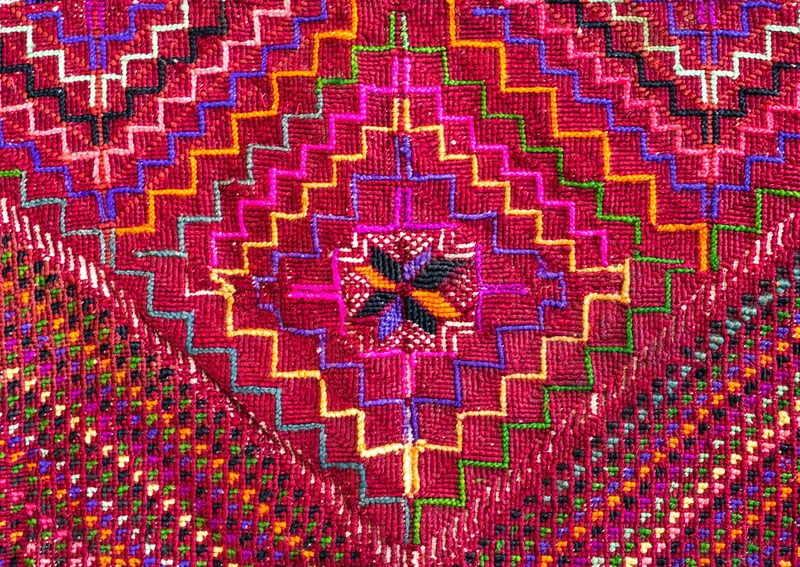Material Power: Palestinian Embroidery
24 Nov 2023-7 Apr 2024


Embroidery is the most important cultural material of Palestine. This ancient practice, called tatreez in Arabic, is characterised by remarkable beauty and complexity. Historically, each area of Palestine was known for different motifs, techniques and textiles. Embroidery constituted a visual language among rural women, and their clothing reflected their origins and identity.
Material Power charts the evolution of embroidery in Palestine over the past century: from rich village tradition, transformed by modernity, to its politicisation in the 1970s and commodification in the present. Over the last 75 years, embroidery has become a powerful symbol of resistance, and the embodiment of resilience on personal and national scales.
On display in the UK for the first time in over 30 years, historical dresses sit alongside the voices of women who continue to embroider today, and the work of contemporary artists critically reinterpreting the practice. Material Power seeks to unfold an intimate, human history of Palestine through clothing.
The Whitworth continues its programme and activities to promote understanding and provide a space for reflection and community during this difficult time. Please contact the Whitworth communications team if you have any queries via [email protected]
Material Power: Palestinian Embroidery was organised by The Whitworth, The University of Manchester in collaboration with Kettle's Yard where it travelled from 8 July – 29 October 2023.